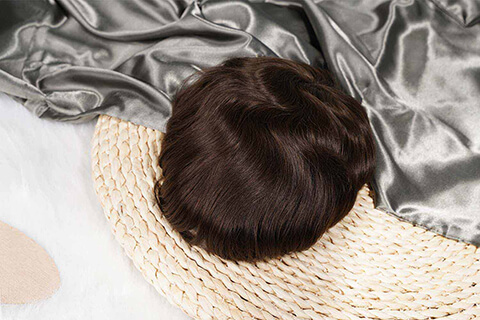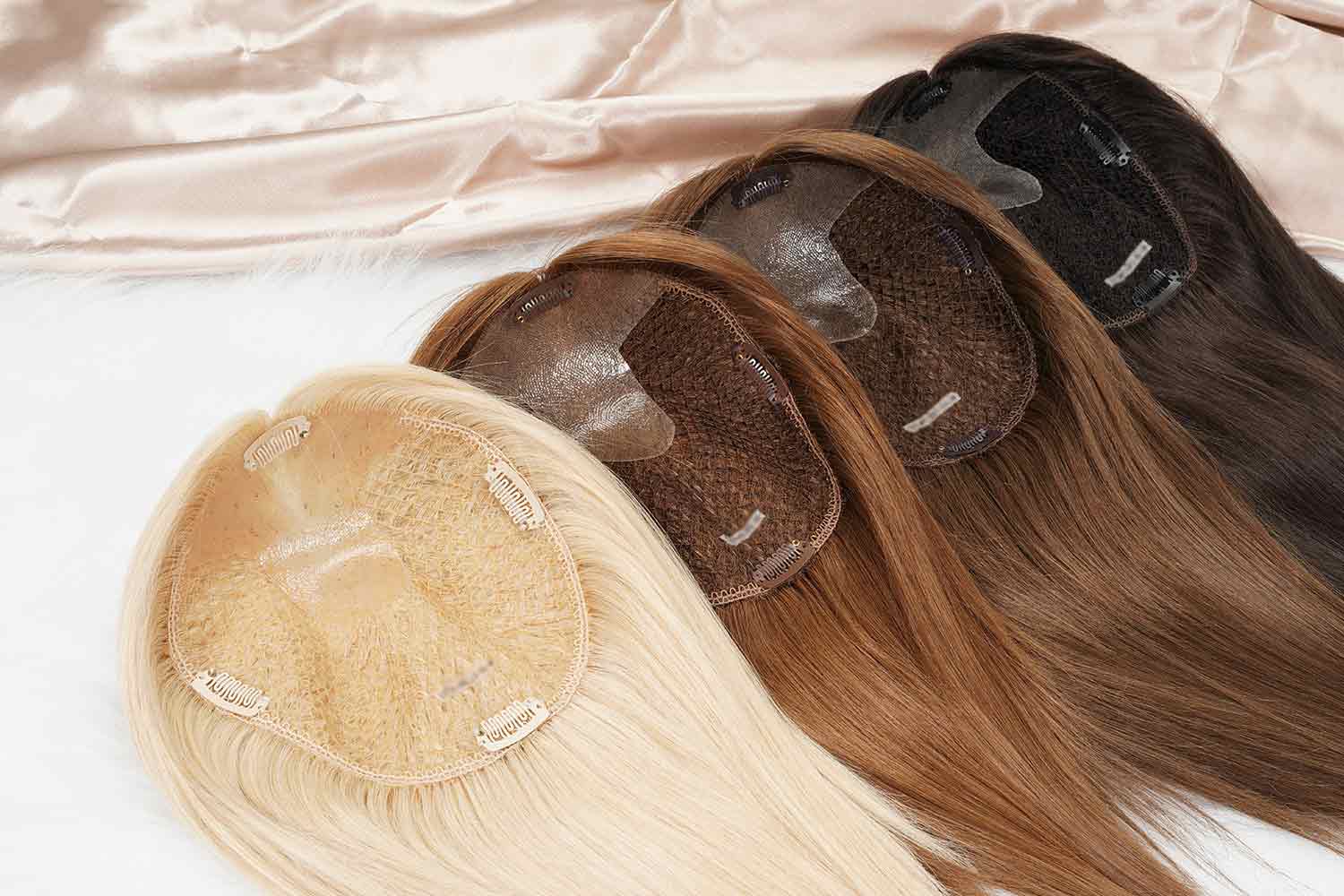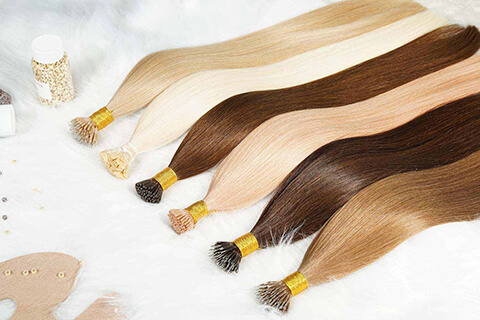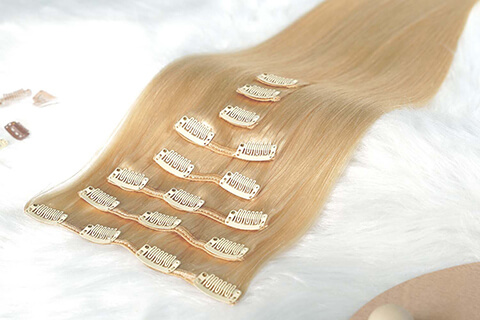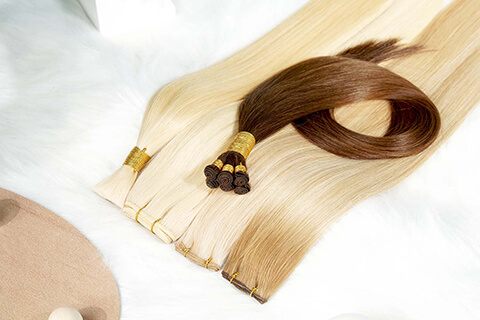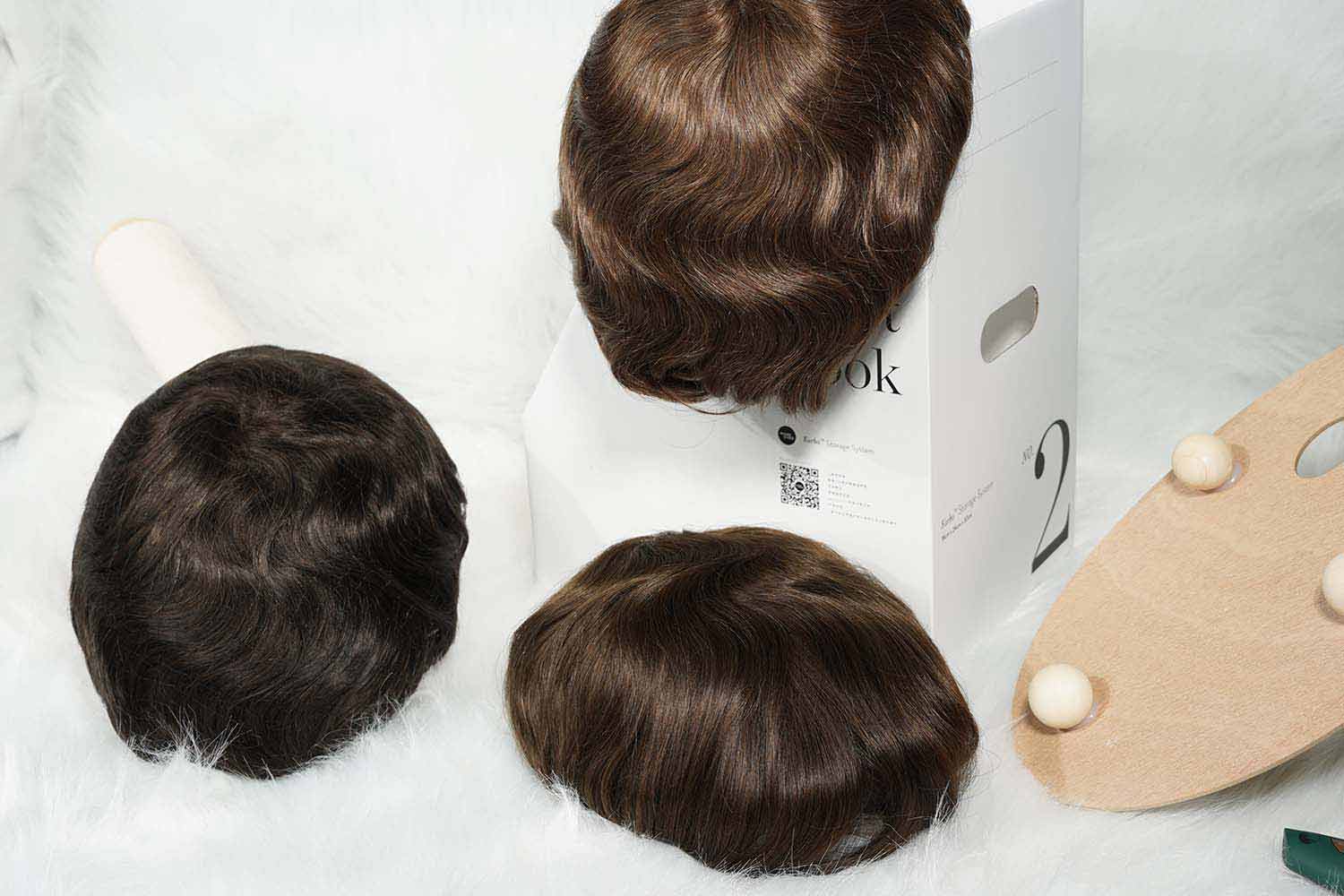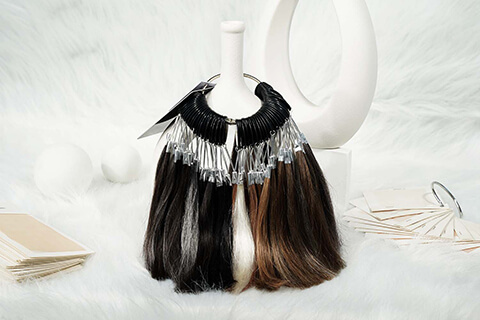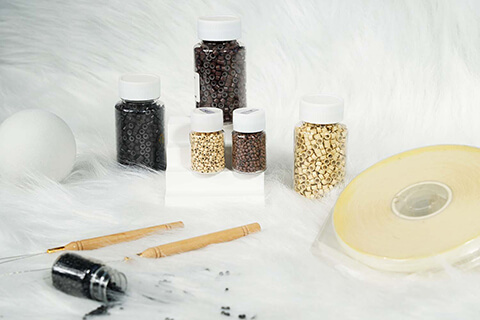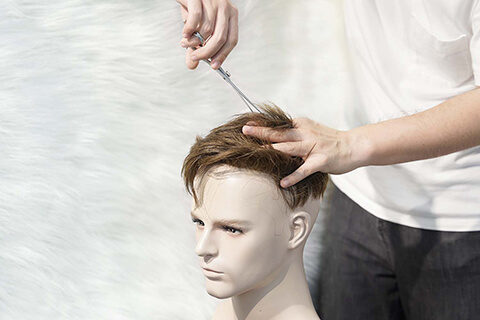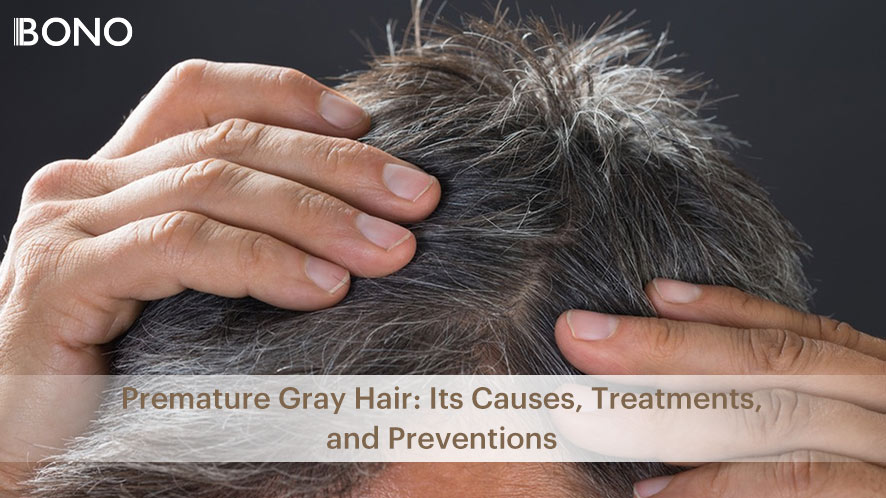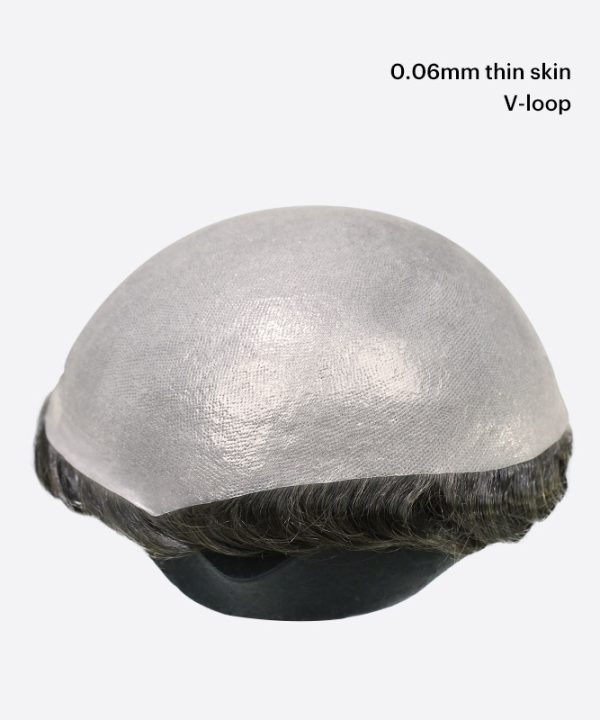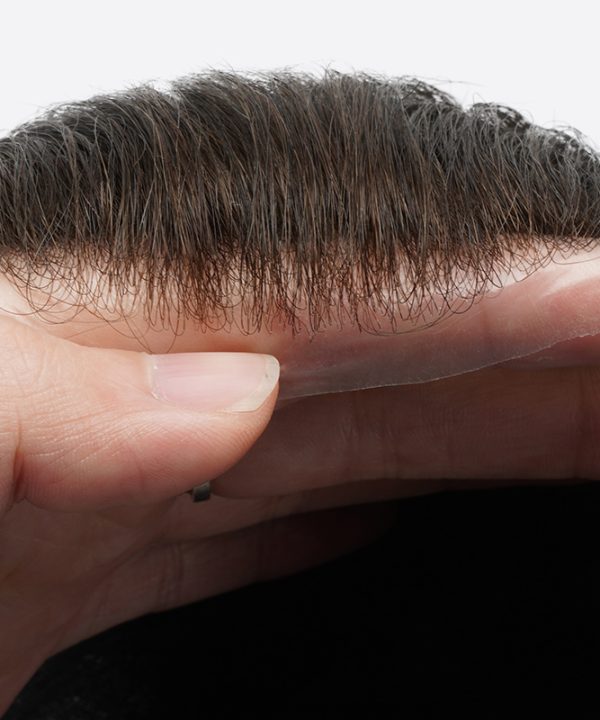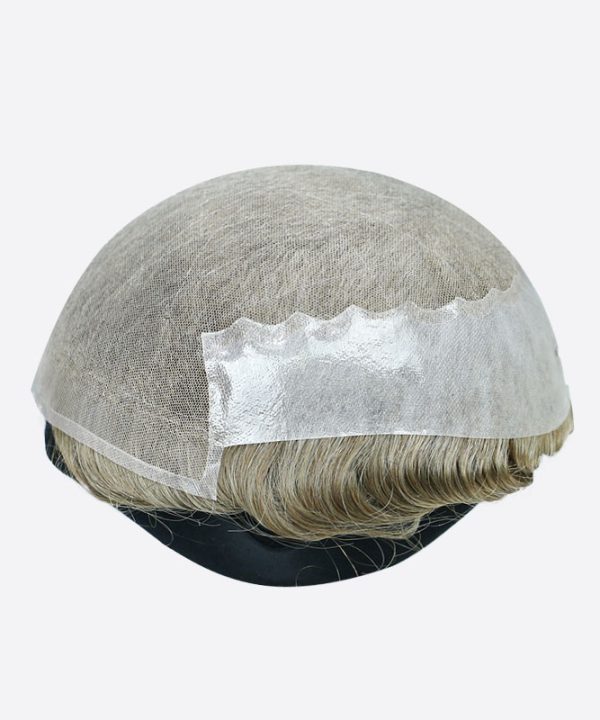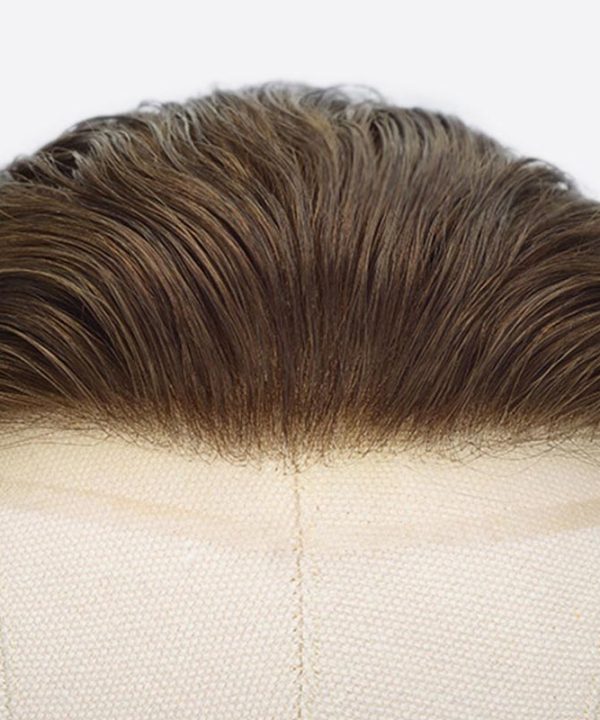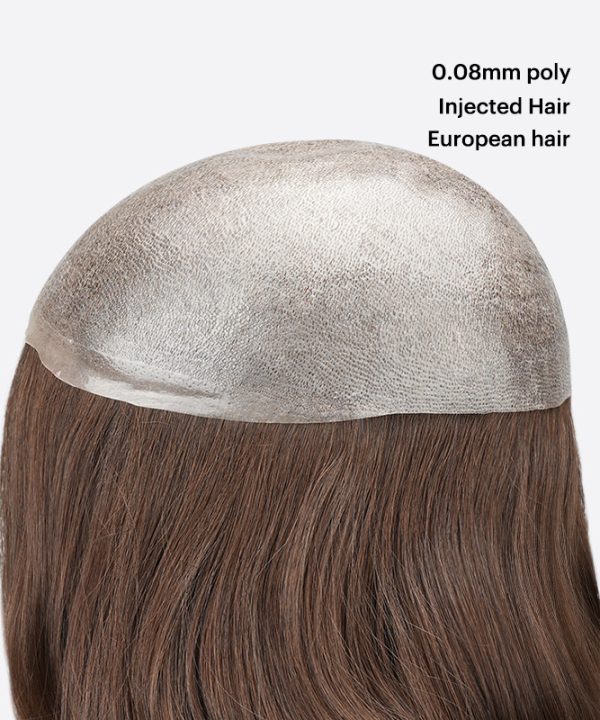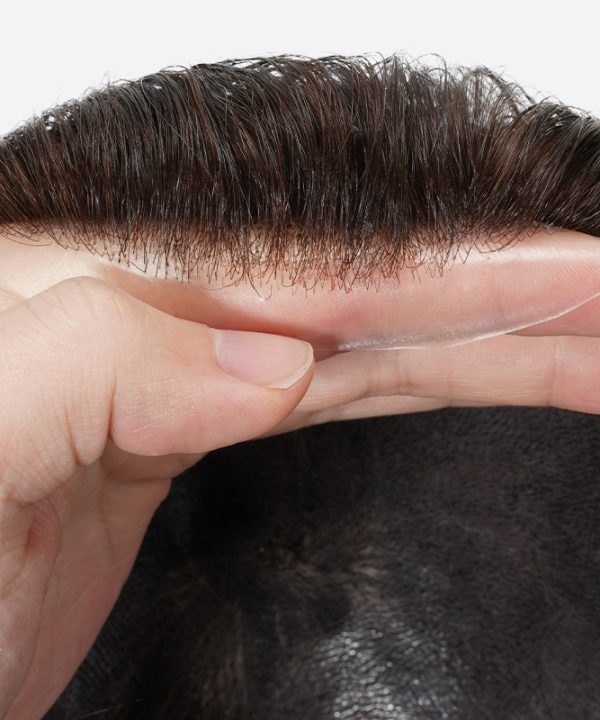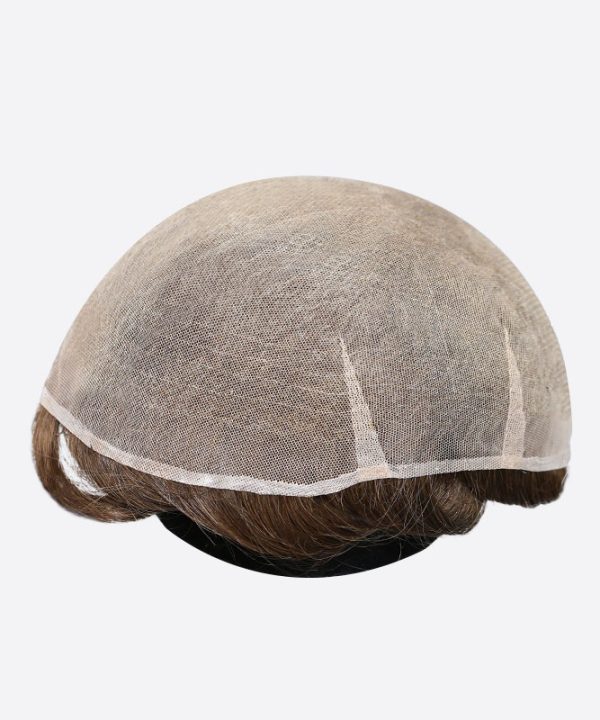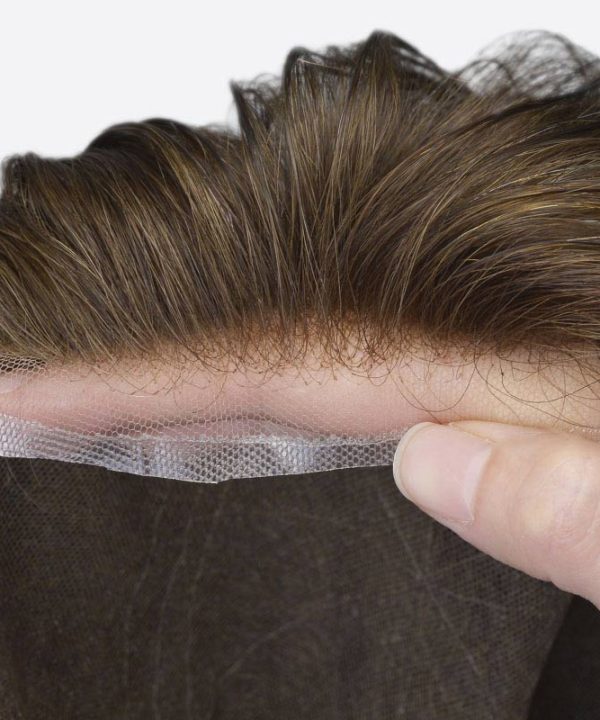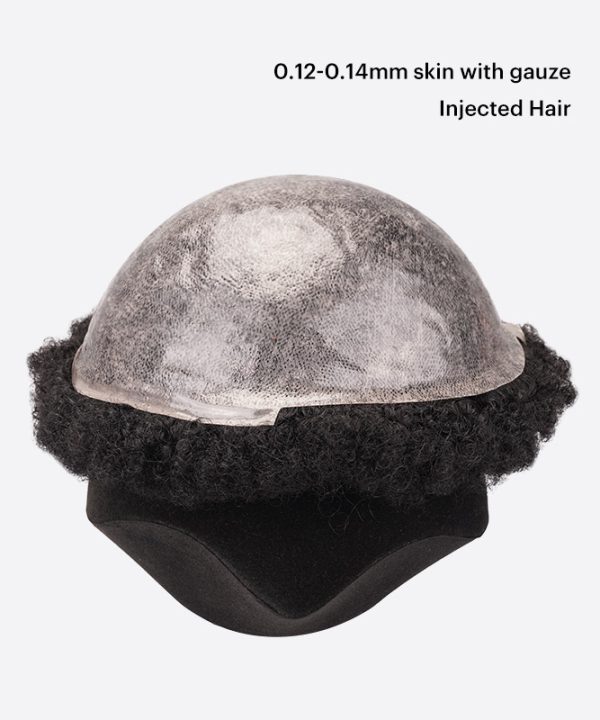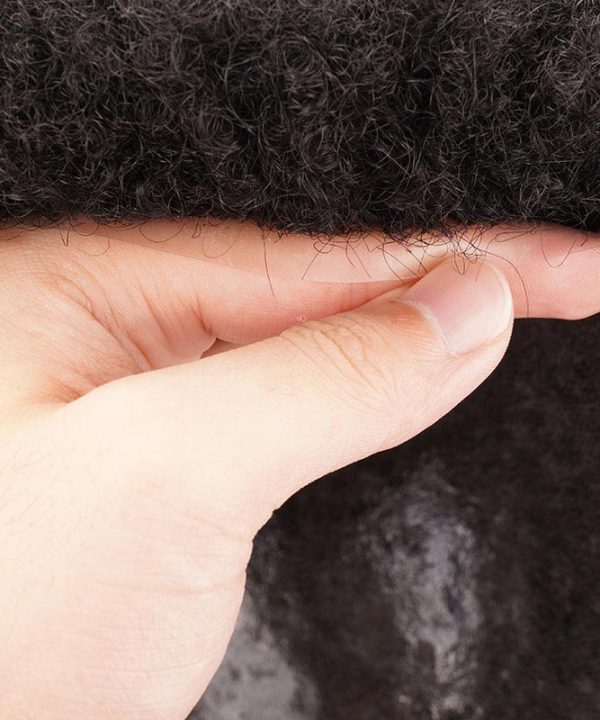Silver, pewter, salt, pepper, or gray hair it’s something that happens to all of us when we age, but when this occurrence happens at an early age, then it’s distressing and alarming. It’s fine when your hair turns gray at 50, but if it happens in your twenties, you must know its causes and what options you have to deal with this premature gray hair dilemma.
This blog will discuss premature gray hair, what causes it, and its prevention and treatment. We will cover the following structure to get you all the details about premature gray hair, so let’s discover more about it.
Premature gray hair, commonly called premature graying, is a condition when one’s hair starts graying at an early age. Graying or losing its color is a natural process that happens as a person ages, but premature gray hair occurs in youngsters as early as their teens.
Premature graying is typically based on family history and ethnicity, but other factors are also involved in the early graying of hair. The early occurrence of gray or white hair can have severe consequences; it significantly impacts one’s self-esteem as it makes one look much older than his real age. To overcome this issue, many people start dying their hair early or using other cosmetic solutions to conceal gray strands. Some people embrace graying as a natural phenomenon, but it’s hard to compromise on the overall appearance.
What Causes Premature Gray Hair?
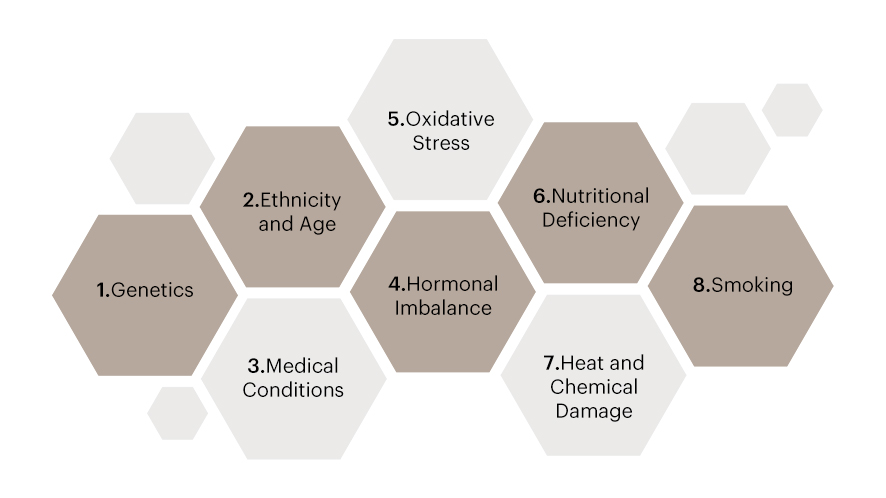
People who suffer from early graying of hair often ask that one question what causes premature gray? What are the root causes of this condition? Hence, let’s find out the factors behind the early onset graying of hair.
● Genetics
Genetics are also a significant factor behind the premature graying of hair. If one has a family history of early onset graying, he has a greater chance of experiencing the same. Melanin is a pigment responsible for hair color; some specific genes are associated with melanin production, and variations in those genes reduce its production. The reduced production of melanin leads to the loss of hair color at an early age.
● Ethnicity and Age
Graying hair is a natural result of aging; the production of melanin reduces as we age, resulting in gray or white hair. On the other hand, ethnicity is something that can also influence the timing of graying; some people of Caucasian ancestry experience early graying of hair as compared to African and Asian ancestry.
● Medical Conditions
Certain medical conditions and autoimmune disorders can also contribute to premature graying; vitiligo is one such disorder. Vitiligo is a disorder in which the body’s immune system destroys melanocytes which is a cell that produces melanin.
● Hormonal Imbalance
Hormones play a crucial part in managing various bodily processes; hair growth and pigmentation is also one of such processes. Hormonal disruption, like an imbalance in thyroid hormone, can also result in premature graying as it impacts melanin production.
● Oxidative Stress
Oxidative stress is something that occurs when an imbalance exists between the body’s antioxidants and free radicals (reactive molecules). Free radicals are responsible for damaging cells, including the ones that cause hair pigmentation. Poor diet, exposure to pollution, and smoking are the few factors that increase oxidative stress, which accelerates graying.
● Nutritional Deficiency
Nutritional deficiency can also contribute to graying, like a lack of certain vitamins and minerals. Vitamin B12, zinc copper is a few vitamins and minerals that can influence hair pigmentation.
● Heat and Chemical Damage
Excessive dying, use of bleach, and heat styling tools also play an important part in potentially leading to premature graying. Frequent use of chemicals and excessive heating damages our hair shafts and follicles and results in premature gray hair.
● Smoking
Smoking has severe harmful effects not only on our health but also on our hair. Excessive smoking affects our body’s cells and circulation, leading to premature hair graying.
How to Prevent Premature Gray Hair?
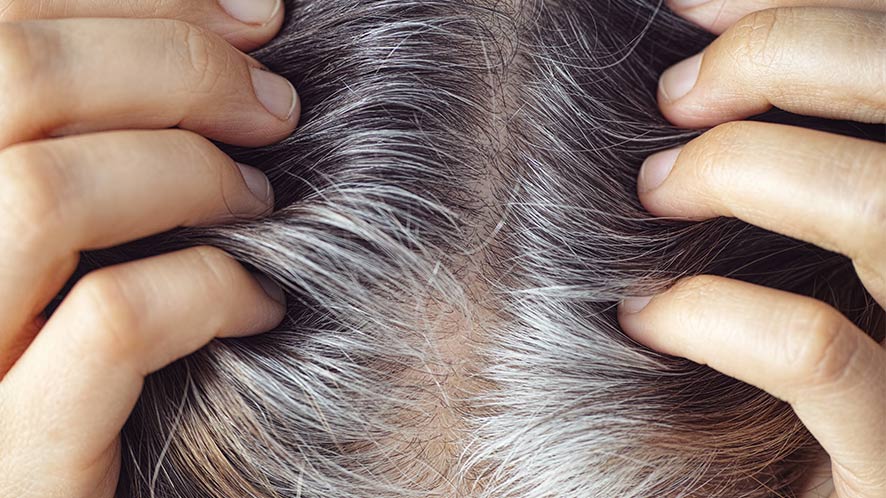
1. Take a Nutritious Diet
Maintaining a balanced diet can contribute enormously to the prevention of premature graying. A balanced and healthy diet can help you get all the essential nutrition your body needs to produce melanin. Eat foods rich in vitamins E and B12, zinc, and copper. Fill your diet with leafy greens and have rich antioxidant fruits that help fight oxidative stress.
2. Manage Stress
Stress and anxiety are deeply associated with hair-related issues and premature graying. Hence managing your stress level is very important; engage yourself in exercises, yoga, meditation, and other activities that can reduce stress and re-establish hormonal balance.
3. Quit Smoking
Smoking, which is detrimental to health, also is one of the factors to cause premature gray hair. Cigarettes carry many harmful chemicals that damage hair follicles and impede melanin production. By quitting smoking, you can only avoid these harmful effects and preserve your natural hair color.
4. Take Protection from UV Rays
Uv rays can not only harm the skin but cause serious damage to our hair, as too much exposure to vv rays is disastrous for hair cuticles and can cause graying. Hence just like our skin, hair also requires sun protection tools and products. If the damage is already done, try treating your hair with coconut oil, argon oil, and aloe Vera rich products to repair the damage.
5. Minimize Chemical Treatments
One of the easiest ways to prevent graying is avoiding chemical treatments. Frequent dying, chemical treatments, or perming damage our hair follicles and disrupt melanin production; by minimizing harsh chemical treatments, we can protect our hair from damage and keep our locks healthy.
6. Switch to Natural Remedies
You can treat and prevent premature graying by switching to natural alternatives. Some many natural herbs and oils can turn gray strands to black without chemical treatment. Amla is incredibly great at stimulating hair pigmentation and graying to a halt. Amla is vitamin C and antioxidant-rich that, aid in strengthening hair follicles.
7. Address Health Risk
As we discussed earlier, several underlying health issues are involved in triggering the premature graying of hair. In order to prevent the acceleration of graying, it’s important to address such health conditions to ensure the optimal functioning of your body. It’s advisable to seek medical assistance to treat these conditions to control premature graying and have healthier hair.
8. Increase Your Water Intake
Staying hydrated can also aid miraculously in graying prevention. Adequate hydration helps provide nutrients to the hair follicle that ensures optimal functioning of cells that work in hair pigmentation. Hence, if you ate struggling with premature graying, you drink at least two liters of water daily.
How to Treat Premature Gray Hair?
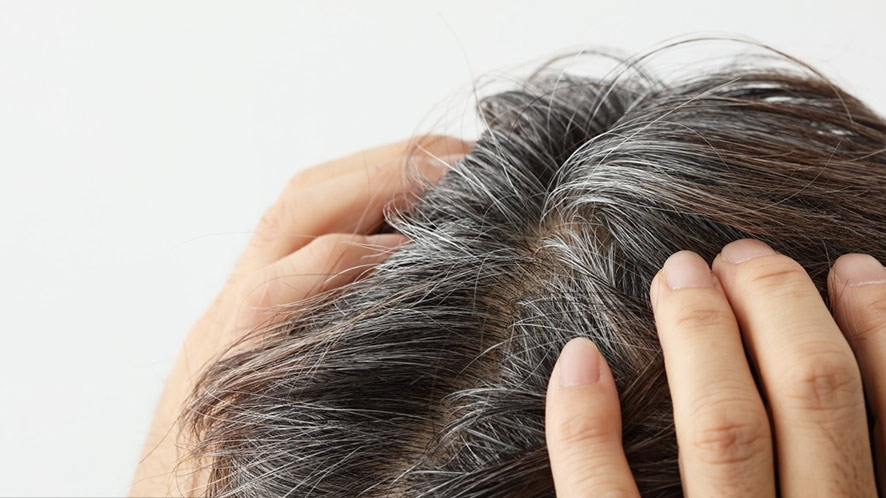
Reversing the graying process isn’t possible, and treatment of premature hair can be challenging. However, there are several approaches through that you can manage premature gray hair.
- Hair dying is one such method through which you can cover your graying and restore natural color. Many permanent and semi-permanent hair dyes are available in the market that can restore your hair color but always use dyes with minimum chemicals.
- You can also use henna for dying and concealing gray hair; henna is a great natural alternative for dying, and henna plants strengthen hair growth.
- You can also take nutritional supplements that contain essential vitamins and minerals as a potential treatment for gray hair.
- LLLT low-level laser therapy is a tested treatment for premature gray hair. Some studies suggest that LLLT aids in the restoration of pigment and stimulates hair growth.
- Topical treatment is another option to treat premature hair by stimulating melanin production in the hair follicles. But the efficiency of that treatment may vary in some cases.
Although there are several helpful ways to treat and prevent graying, sometimes things need to be improved due to different circumstances and unknown causes. Hence, those who face severe graying along with other hair problems like hair thinning and male patterned baldness can get rid of these problems by investing in a hair system. Modern-day hair replacement systems are the easiest solution to all your hair problem as it provides an immediate natural-looking appearance to your gray and thinning hair. These systems, designed with advanced techniques, replace your graying with natural human hair strands and provide a satisfying appearance for your hair.
Conclusion
To sum it up, it’s important to know that graying is a natural part of aging, and sometimes premature gray hair can occur without any underlying medical conditions or lifestyle factors. Hence if you are struggling with premature graying and worried about its consequences, then it’s advisable to consult a healthcare professional. Dermatologists and healthcare professionals can properly assess your condition can identify the underlying cause of it. These professionals can also provide you with appropriate management and care programs to prevent premature gray hair.
Although there is no way to guarantee 100 percent prevention for graying, we can always control its pace by leading a healthy lifestyle, taking care of our hair, and managing stress.










